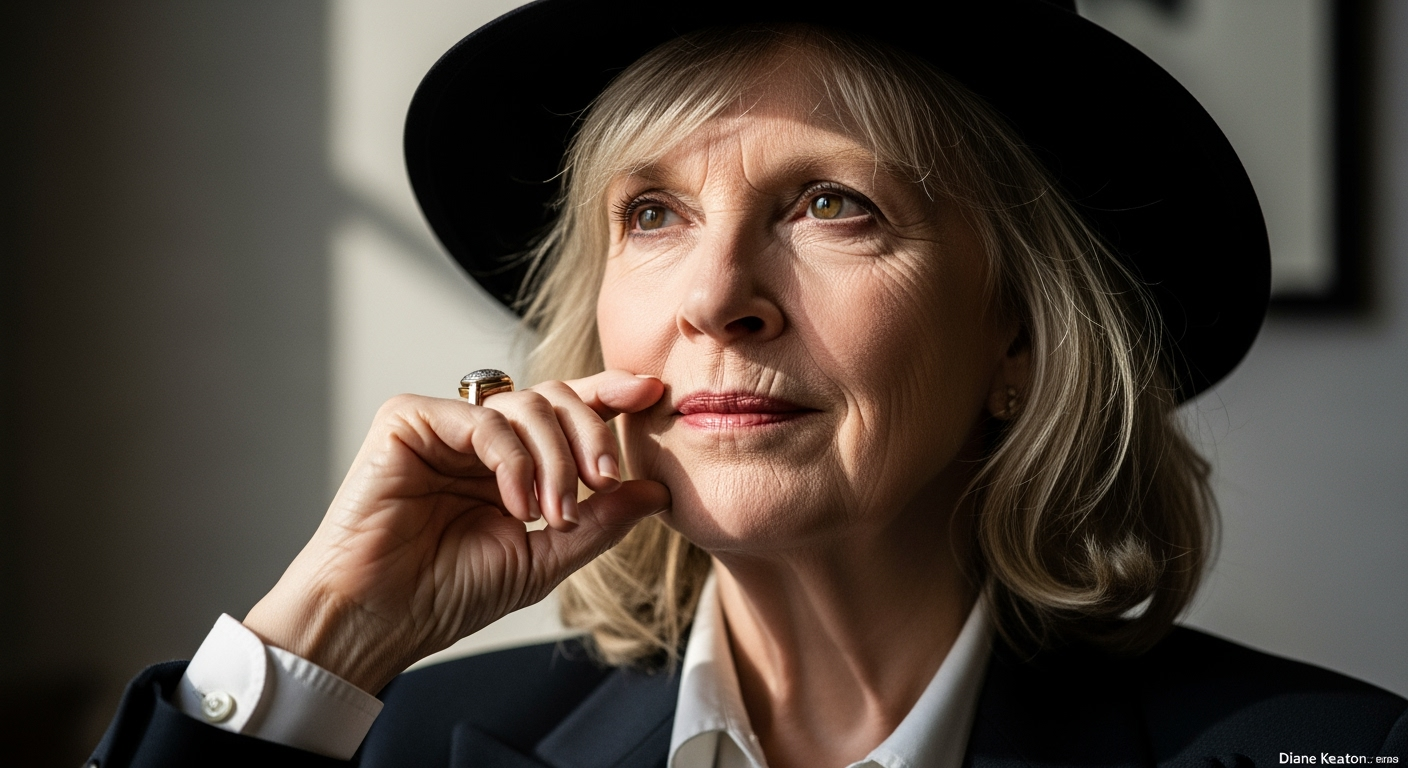Related Articles

Escalating Trade War: China Slams US for 'Double Standards' Amid New Tariffs

Mexico Reels from Catastrophic Floods and Landslides, Death Toll Climbs to 37





Hollywood is mourning the loss of Diane Keaton, the beloved Oscar-winning actress, director, and fashion icon, who has died at the age of 79. The news was confirmed by People magazine, sending ripples of shock and sadness through the entertainment world and among her legion of fans. Keaton, known for her distinctive style, captivating performances, and singular wit, passed away on Friday in California, though no cause of death has been disclosed at this time. Her loved ones have asked for privacy as they grieve.
Keaton's career spanned over five decades, establishing her as one of cinema's most versatile and enduring talents. From her early collaborations with Woody Allen to her dramatic turns in Francis Ford Coppola's "The Godfather" trilogy and later comedic successes, she consistently redefined the roles available to women in Hollywood, leaving an indelible mark on film, fashion, and culture. Her unique blend of intelligence, vulnerability, and self-deprecating humor made her a perpetually engaging presence on screen and a truly singular figure in American cinema.
Born Diane Hall on January 5, 1946, in Los Angeles, California, Keaton adopted her mother's maiden name for her professional career. Her journey into the performing arts began on the stage, where she appeared in the original 1968 Broadway production of the musical Hair and earned a Tony Award nomination for her role in Woody Allen's comic play, Play It Again, Sam. Her screen debut came in the 1970 romantic comedy Lovers and Other Strangers.
However, her breakthrough to wider recognition arrived swiftly with her casting as Kay Adams-Corleone in Francis Ford Coppola's cinematic masterpiece, The Godfather (1972). She reprised this pivotal role in its equally acclaimed sequels, The Godfather Part II (1974) and The Godfather Part III (1990), grounding the epic crime saga with emotional depth as the conflicted wife of Michael Corleone. Keaton's initial reluctance to return for the sequel was overcome after reading the script, demonstrating her commitment to character and story.
The watershed moment of her career came in 1977 with her Oscar-winning performance in Woody Allen's romantic comedy-drama, Annie Hall. The film, which earned her the Academy Award for Best Actress, not only became a cultural phenomenon but also solidified Keaton's status as a leading lady. Her portrayal of the free-spirited, quirky Annie, a character loosely based on Keaton herself, showcased her exceptional comedic timing and natural charm. This role also famously introduced her distinctive menswear-inspired fashion, which would go on to influence generations. Her collaboration with Allen, which began with the film adaptation of Play It Again, Sam (1972), included other notable films such as Sleeper (1973), Love and Death (1975), and Manhattan (1979), with Allen famously crediting her as his muse during his early film career.
Beyond her iconic early roles, Keaton continued to demonstrate remarkable range throughout her career, seamlessly transitioning between dramatic and comedic performances. She received further Oscar nominations for her compelling work as activist Louise Bryant in Warren Beatty's historical epic Reds (1981), a woman struggling with leukemia in the family drama Marvin's Room (1996), and a dramatist looking for love in the romantic comedy Something's Gotta Give (2003). Her roles in films like Looking for Mr. Goodbar (1977) and Shoot the Moon (1982) showcased her ability to tackle complex, sometimes challenging, female characters, earning her critical acclaim.
Keaton's comedic prowess also shone brightly in a string of commercially successful films that endeared her to wider audiences. These included the heartwarming Baby Boom (1987), the beloved Father of the Bride (1991) and its 1995 sequel, and the star-studded ensemble comedy The First Wives Club (1996). The First Wives Club, in particular, resonated with middle-aged women and became a major box office hit. She also maintained her presence in later years with popular films like The Family Stone (2005) and the Book Club franchise, demonstrating her enduring appeal well into her seventies. Even in her later years, she remained prolific, making several films since the start of the pandemic and releasing a festive single in December 2024.
Diane Keaton's contributions to Hollywood extended beyond her celebrated acting career. She also ventured into directing, helming music videos for artists like Belinda Carlisle, episodes of television series such as Twin Peaks, and feature films, including Unstrung Heroes (1995) and Hanging Up (2000), in which she also co-starred. Her diverse creative output also included publishing memoirs, such as Then Again (2011), and books on architecture and design.
Perhaps as impactful as her filmography was her unparalleled influence on fashion. Keaton became an accidental style icon with her menswear-inspired look in Annie Hall, a style that was largely her own creation. Her signature aesthetic—characterized by oversized blazers, vests, tailored trousers, hats, and ties—challenged conventional femininity and championed individuality. This distinctive fashion sense became synonymous with her persona, inspiring countless women and making her one of the most recognized and influential style figures in cinema history. She often mixed high-end designers with thrift store finds, a practice nurtured by her mother, and famously embraced hats and turtlenecks.
Throughout her life, Keaton remained a fiercely independent spirit. While she never married, she openly discussed her relationships with notable figures like Woody Allen, Al Pacino, and Warren Beatty. She adopted two children, Dexter and Duke, in the 1990s, and often spoke about her joys and challenges as a mother. Her personal life, marked by a quiet determination and a preference for privacy, resonated with many who admired her authenticity.
Keaton's legacy is one of continuous reinvention and unwavering dedication to her craft. She earned numerous accolades throughout her career, including an Academy Award, a BAFTA Award, and two Golden Globe Awards, in addition to multiple nominations for Emmy and Tony Awards. In recognition of her profound influence, she was honored with the Film Society of Lincoln Center Gala Tribute in 2007 and a prestigious AFI Life Achievement Award in 2017. Her work consistently showcased human complexity, delivered with charm, vulnerability, and a subtle rebellious streak.
The passing of Diane Keaton marks the end of an era for Hollywood. She was not merely an actress but a cultural touchstone whose impact transcended the screen. Her unique ability to inhabit characters that were both deeply relatable and wonderfully eccentric, coupled with her groundbreaking fashion sensibilities, forged a path for unconventional leading women in cinema. As Hollywood mourns, her extensive filmography and iconic style will continue to inspire and entertain generations, cementing her place as an unforgettable legend of the silver screen.